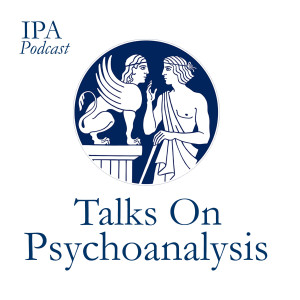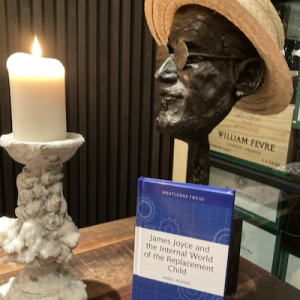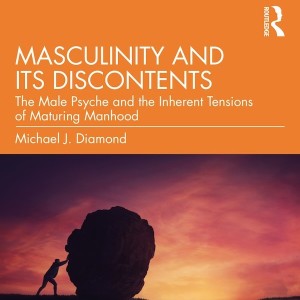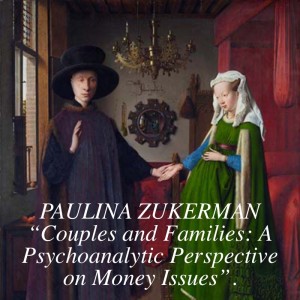Talks On Psychoanalysis
families
Episodes

Wednesday Mar 19, 2025
Wednesday Mar 19, 2025
Medical interventions in fertility have transformed how people experience parenthood. How can clinicians navigate the intricate emotional landscape created by assisted reproduction?
In this episode, Renata Viola Vives and Ana Teresa Vale explore the complex relationship between assisted reproduction and psychoanalysis, drawing from their edited book, "Pregnancy, Assisted Reproduction and Psychoanalysis," published by Routledge. Conceived through years of clinical work and shaped by the collaborative encounters fostered by COWAP, the IPA Women and Psychoanalysis Committee, they explore how contemporary practices redefine our understanding of parenthood, identity, and desire.
Drawing on their extensive experience, the authors address the historical tensions between psychoanalysis and reproductive technologies, and highlight the need for a nuanced approach. By examining the emotional impact of procedures like gàmete donation and sùrrogacy, they emphasize the importance of understanding the anxieties and fantasies that accòmpany these kinds of journeys to parenthood.
Renata Viola Vives is a Clinical Psychologist and Psychoanalyst, a member of the Brazilian Society of Psychoanalysis in Porto Alegre, and currently COWAP's Latin-American representative. She is an editor and organizer of books on parenting, assisted reproduction, and adoption.
Ana Teresa Vale is a Clinical Psychologist and a Psychoanalyst, member of the Portuguese Psychoanalytic Society, teaching in her Society’s training program. She is Assistant Director of the Portuguese Psychoanalytic Journal, and currently COWAP's European representative.
This episode is presented in English, Portuguese, Spanish, and French. The English version is read by Ana Teresa Vale.
french
portuguese
spanish
This Podcast Series, published by the International Psychoanalytical Association, is part of the activities of the IPA Communication Committee and is produced by the IPA Podcast Editorial Team.
Co-Editors: Gaetano Pellegrini and Nicolle Zapien.
Editing and Post-Production: Massimiliano Guerrieri.
To stay informed about the latest podcast releases, please sign up today.

Monday Nov 07, 2022
Monday Nov 07, 2022
In this episode, Mary Adams delve into issues related to the trauma of being a replacement child. She illustrates this with the example of James Joyce, as "he seemed to overcome the debilitating effects of this early trauma and survivor guilt by using his writing".
Mary Adams is a psychoanalyst with the British Psychoanalytic Association, having completed her training in 1996. She was a training analyst with the Association of Child Psychotherapists, has a particular interest in the work of Donald Meltzer and has written several papers using his ideas. She is a past editor of the Journal of the British Association of Psychotherapy. Her book on James Joyce as a replacement child was published by Routledge in 2022.
Link to the paper https://docs.google.com/document/d/1-hL8XbcupQQXAwbwh4ow4hQkBwccIyTo/edit?usp=share_link&ouid=112457875385152358388&rtpof=true&sd=true
Further reading on the Replacement Child:
Anisfeld, L., & Richards, A. D. (2000). The replacement child: Variations on a theme in history and psychoanalysis. Psychoanalytic Study of the Child, 55: 301–318.
Capps, D. (2012). The Replacement Child: Solomonic Justice and the Sublimation of Sibling Envy American Imago, 69(3): 385-400
Pollock, G. H. (1972). Bertha Pappenheim's Pathological Mourning: Possible Effects of Childhood Sibling Loss. J. Amer. Psychoanal. Assn., 20:476-493
Pollock, G. H. (1978). On Siblings, Childhood Sibling Loss, and Creativity. Annual of Psychoanalysis 6:443-481
Reid, M. (1992). ‘Joshua — Life after death. The replacement child’, Journal of Child Psychotherapy, Vol. 18, 2. Pp. 109-138.
Sabbadini, A. (1988). The Replacement Child. Contemporary Psychoanalysis. 24: 528-547.
Schellinski , K. (2019). Individuation for Adult Replacement Children: Ways of Coming into Being. Routledge
Schwab, G. (2009). Replacement children: The transgenerational transmission of traumatic loss. American Imago 66 (3), 277-310.
Silver, D. (1983). The Dark Lady: Sibling loss and mourning in the Shakespearean sonnets. Psychoanalytic Inquiry, 3: (3): 513–527.
Storey, D. (2021). A Stinging Delight. David Story: A Memoir. Faber & Faber.
Whitebook, J. (2017). Freud. An Intellectual Biography. Cambridge UP
Wilson, E. (1988). Stendhal as a Replacement Child: The Theme of the Dead Child in Stendhal's Writings. Psychoanalytic Inquiry, 8:108-133
This Podcast Series, published by the International Psychoanalytical Association, is part of the activities of the IPA Communication Committee and is produced by the IPA Podcast Editorial Team. Head of the Podcast Editorial Team is Gaetano Pellegrini. Editing and Post-Production: Massimiliano Guerrieri.

Wednesday Oct 26, 2022
Wednesday Oct 26, 2022
The paternal function is one of the most embedded concepts both in the singular dimension of clinical thinking and in the extended of social functioning. It underlies, for example, one of the foundational elements of the psychoanalytic method: the very idea of “Analytic Setting” could not exist without a paternal function.
In today's episode, thanks to the work of Michael J Diamond, we will explore its many aspects, including the construction of a triangular space, the role of the Third in the internal functioning of the subject, and the question of limits. We will also delve into more specific characteristics, such as the tenderness and sensory intimacy between a little boy and his father. We might say that this podcast episode is like a "child" of Michael J Diamond’s recent book published by Routledge and entitled: "Masculinity and Its Discontents”, in which he studies, as the subtitle says: “The Male Psyche and the Inherent Tensions of Maturing Manhood”.
Link to download the paper https://docs.google.com/document/d/1QfcWssRszuStn90QjrWXh7YvvDfGCw3A/edit?usp=sharing&ouid=112457875385152358388&rtpof=true&sd=true
Michael J. Diamond, PhD, FIPA is a Training and Supervising Analyst at the Los Angeles Institute and Society for Psychoanalytic Studies. His major publications are on psychoanalytic technique and analytic mindedness; masculinity, femininity, and gender theory; fathering and the paternal function; trauma and dissociation; hypnosis and altered states; and group processes and social action. He has written five books including today’s featured book on Masculinity and Its Discontents: The Male Psyche and the Inherent Tensions of Maturing Manhood published by Routledge. His most recent book on applied psychoanalysis, Ruptures in the American Psyche: Containing Destructive Populism in Perilous Times, was just published (by Phoenix Publishing). His other major books include My Father Before Me: How Fathers and Sons Influence Each Other Throughout Their Lives and an edited book on The Second Century of Psychoanalysis: Evolving Perspectives on Therapeutic Action (with Chris Christian). He is the honored recipient of numerous awards for his teaching, writing, and clinical contributions, and has a full-time clinical practice in Los Angeles, California where he remains active in teaching, supervising, and writing.
Selected Recommended Readings for Michael J. Diamond’s Podcast
Blos, P. (1985). Son and Father: Before and Beyond the Oedipus Complex. New York: Free Press.
Corbett, K. (2009). Boyhoods: Rethinking Masculinities. New Haven, CT: Yale University Press.
Diamond, M. J. (2004). The shaping of masculinity: revisioning boys turning away from their mothers to construct male gender identity. Int. J. Psychoanal., 85:359–380.
Diamond, M. J. (2006). Masculinity unraveled: the roots of male gender identity and the shifting of male ego ideals throughout life. J. Amer. Psychoanal. Assn., 54:1099–1130.
Diamond, M. J. (2007). My Father Before Me: How Fathers and Sons Influence Each Other Throughout Their Lives. New York: Norton.
Diamond, M. J. (2015). The elusiveness of masculinity: primordial vulnerability, lack, and the challenges of male development. Psychoanal. Q., 84:47–102.
Diamond, M. J. (2017). The missing father function in psychoanalytic theory and technique: the analyst’s internal couple and maturing intimacy. Psychoanal. Q., 86:861–887.
Diamond, M. J. (2020). The elusiveness of “the feminine” in the male analyst: living in yet not being of the binary. Psychoanal. Q.,89:503–526.
Diamond, M. J. (2021). Masculinity and Its Discontents: The Male Psyche and the Inherent Tensions of Maturing Manhood. London: Routledge.
Freud, S. (1905). Three essays on the theory of sexuality. S. E., 7:130–243.
Friedman, R. C. & Downey, J. L. (2008). Sexual differentiation of behavior: the foundation of a developmental model of psychosexuality. J. Amer. Psychoanal. Assn., 56:147–175.
Glasser, M. (1985). The “weak spot”—some observations on male sexuality. Int. J. Psychoanal., 66:405–414.
Laplanche, J. (1997). The theory of seduction and the problem of the other. Int. J. Psychoanal., 78:653–666.
Lax, R. F. (1997). Boys’ envy of mother and the consequences of this narcissistic mortification. Psychoanal. Study Child, 52:118–139.
Moss, D. (2012). Thirteen Ways of Looking at a Man: Psychoanalysis and Masculinity. London: Routledge.
Stoller, R. J. (1985). Presentations of Gender. New Haven, CT: Yale University Press.
This Podcast Series, published by the International Psychoanalytical Association, is part of the activities of the IPA Communication Committee and is produced by the IPA Podcast Editorial Team. Head of the Podcast Editorial Team: Gaetano Pellegrini. Editing and Post-Production: Massimiliano Guerrieri.

Sunday Dec 05, 2021
Sunday Dec 05, 2021
Phantasy knotted around money as a drive derivative organizes unconscious modes of family survival. Social, historical, political, and economic considerations also influence the conscious and unconscious establishment of alliances, pacts, agreements, and rules to govern family life. Is the re-drafting of laws enough to solve the permanent difficulties of equivalence when couples and families talk about money and assets?
In this episode we will listen to Paulina Zukerman’s paper: “Couples and Families: A Psychoanalytic Perspective on Money Issues”, in which she considers unconscious stipulations to be an illusory attempt to lessen the uncertainty of otherness. She draws references to Freud, Isidoro Berenstein and René Kaës.
Paulina Zukerman holds a PhD and is a full member and training analyst at the Psychoanalytic Association of Buenos Aires. She is the director and tenured professor for the Master’s Degree Program on Family and Couples at the University Institute of Mental Health of the Buenos Aires Psychoanalytic Association and in Maringa, Brazil. She has published in several psychoanalytic reviews and works in private practice in Buenos Aires.
Link to the paper https://docs.google.com/document/d/1dCAV8MAr-v8unphRsv1psnjRUF-DcR2i/edit?usp=sharing&ouid=112457875385152358388&rtpof=true&sd=true
This paper is also available in Spanish
Paulina Zukerman has also published articles in psychoanalytic journals:
“Apuntes para una psicopatologia de la economia cotidiana: El dinero en la clínica vincular” (2020): “Notes for a psychopathology of day-to-day home economics: money in clinical practice with linked patients.” Revista de Psicoanálisis de Guadalajara, N° 14, México.
“Intimidad en los vínculos familiares. Reflexiones a partir de diversas investigaciones”. (2017) “Intimacy in family links”: IPA Congress. Revista Psicoanálisis. Vol. XXXIX, N° 1-2.
“Sull'assimmetría nei patti e accordi familiari.” Family pacts and agreements:
about asymmetry”: Revista de la Societá Italiana di Psicoterapia Psicoanalítica (S.I.P.P.)(2006).
Zukerman PhD thesis, University of Buenos Aires, 2015: “Conceptual analysis of the relationship between unconscious pacts and agreements and the circulation of money in families and couples”.
The Arnolfini Portrait, 1434, Jan van Eyck. Courtesy National Gallery, London.

Sunday Nov 14, 2021
Sunday Nov 14, 2021
Themes of hiding abound in the developmental narratives of boys who grow up to be gay. Their need to hide is reinforced by the traumatizing public humiliation that ensues from either open expressions of same-sex desire or gender- nonconforming behavior. The experience of being discovered, punished, and humiliated for showing or acting on such feelings or behaviors can lead to hiding activities that persist long after the actual trauma is forgotten. When open expressions of same-sex intimacy are driven underground, clandestine and forbidden sexual activities, highly tinged with interpersonal anxiety, may become a significant mode of relatedness. This papers offers a clinical psychoanalytic approach for working with gay men that distinguishes the concept of sexual compulsion from that of sexual identity. Harry Stack Sullivan’s conceptualization of dissociative defenses is useful in clinically understanding and therapeutically working with gay men in general, and with sexually compulsive gay men in particular. This approach allows the sexual identities of gay men to be respected while addressing the compulsive behaviors that some of them find so troubling.
Jack Drescher is a psychiatrist and psychoanalyst in private practice in New York City, a Clinical Professor of Psychiatry at Columbia University and a Faculty Member of their Psychoanalytic program and their Division of Gender, Sexuality and Health. He is an adjunct Professor at the New York University Postdoctoral Program in Psychotherapy and Psychoanalysis and a Training and Supervising Analyst at the William Alanson White Institute. He also serves as a consultant to IPA’s Committee on Gender and Sexual Diversity.
SELECTED PRESENTATIONS AND PUBLICATIONS
Reed GM, *Drescher J, Krueger RB, Atalla E, Cochran SD, First MB, Cohen-Kettenis PT, et al. Revising the ICD-10 Mental and Behavioural Disorders classification of sexuality and gender identity based on current scientific evidence, best clinical practices, and human rights considerations. World Psychiatry, 15:205–221.
Drescher J, Schwartz A, Casoy, F, McIntosh CA, Hurley, B, Ashely K, et al: The growing regulation of conversion therapy. Journal of Medical Regulation, 102(2):7-12.
Drescher J, Cohen-Kettenis PT, Reed GM: Gender incongruence of childhood in the ICD-11: Controversies, proposal, and rationale. Lancet Psychiatry, 2016, 3:297-304.
Drescher J, Cohen-Kettenis PT, Winter S: Minding the body: Situating gender diagnoses in the ICD-11. International Review of Psychiatry, 2012, 24(6): 568–577.
Drescher J: Queer diagnoses: Parallels and contrasts in the history of homosexuality, gender variance, and the Diagnostic and Statistical Manual (DSM). Archives of Sexual Behavior, 2010, 39:427–460.

Tuesday Jun 29, 2021
Tuesday Jun 29, 2021
Interpretation of Dreams, by Rod Moss
Craig San Roque, community psychologist and psychotherapist has, for the past 30 years lived in Central Australia working within indigenous Australian circumstances. He has written many careful accounts of the existential realities of intercultural collaborations and tensions. Trained in London, with the Society for Analytical Psychology, he cautiously adapts and applies psychoanalytic insights to help negotiate the rough environment of Aboriginal/white Australian relations.Mourning Melancholia and The Echo Effect - on aspects of unconscious transference within black/white relations - is distilled from experience in a project co-developed with indigenous friends who are part of the Central Australian NPY Women’s Council, Uti Kulintjaku/Clear Thinking project, initiated by traditional healers (Ngangkari).
The Passion, by Rod Moss
References to the Uti Kulintjaku projects, including evaluations by Samantha Togni may be found through the NPY Women’s Council website - npywc.org.au - see section on Ngangkari-traditional healers and Uti Kulintjaku project.NPY Women’s Council is an Anangu led organisation that delivers heath, social and cultural services in the Ngaanyatjarra Pitjantjatjara Yankunytjatjara (NPY) region of Central Australia.
Link to the paper https://drive.google.com/file/d/1vCDPRxFRbe11hJh-N8pQzhE0fV7p-2tI/view?usp=sharing

Monday Feb 22, 2021
Monday Feb 22, 2021
Over the last thirty years, there have been significant changes in the structure of families and couples. These include challenges to the traditional family structure, women’s empowerment, a rebellion against the patriarchy and the legitimization of same-sex couples. All of these have brought about a dramatic increase in the diversity of family configurations. In this book, the authors aim to take into account these new configurations and explore new ways of thinking about the links within families, couples and siblings. Their book describes clinical interventions which are based on the link approach, which enables the broadening of the range of classical psychoanalytic resources. The link approach is not content with proposing just one more application of psychoanalysis but seeks to account conceptually for the territorial expansion that has occurred in contemporary psychoanalysis.
The 3 authors are Buenos Aires Psychoanalytical Association Training Analysts and Professors at the Master´s Program in Family and Couple Studies in the University Institute of Mental Health of the Buenos Aires Psychoanalytical Association.
Susana Kuras Mauer, has a Masters in Couples and Families and is an IPA Specialist in Child and Adolescent Psychoanalysis.
Sara Moscona, is a Couples and Families Professor at the University of Buenos Aires.
And Silvia Resnizky was Director of the Master’s Program in Family and Couple Studies (2013 - 2017), an IPA Board member (2017-2021) and IPA Executive Committee member (2019-2021).
Psychoanalytic Work with Families and Couples:Clinical Perspectives on Suffering
Published October 15, 2019 by Routledge
158 Pages 16 B/W Illustrations
This episode is available also in Spanish